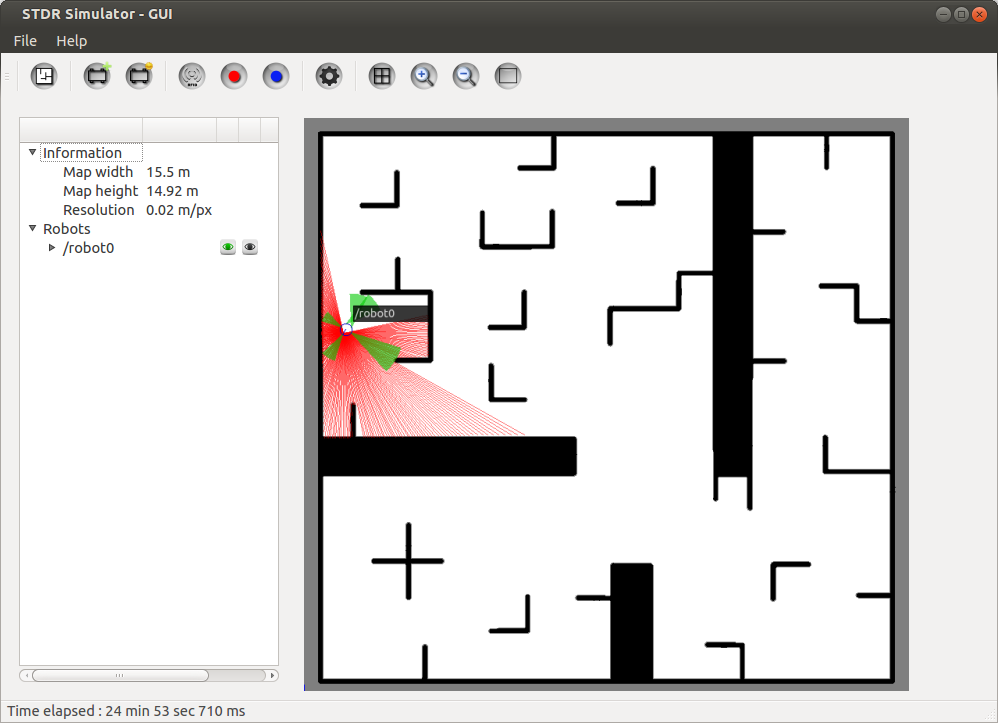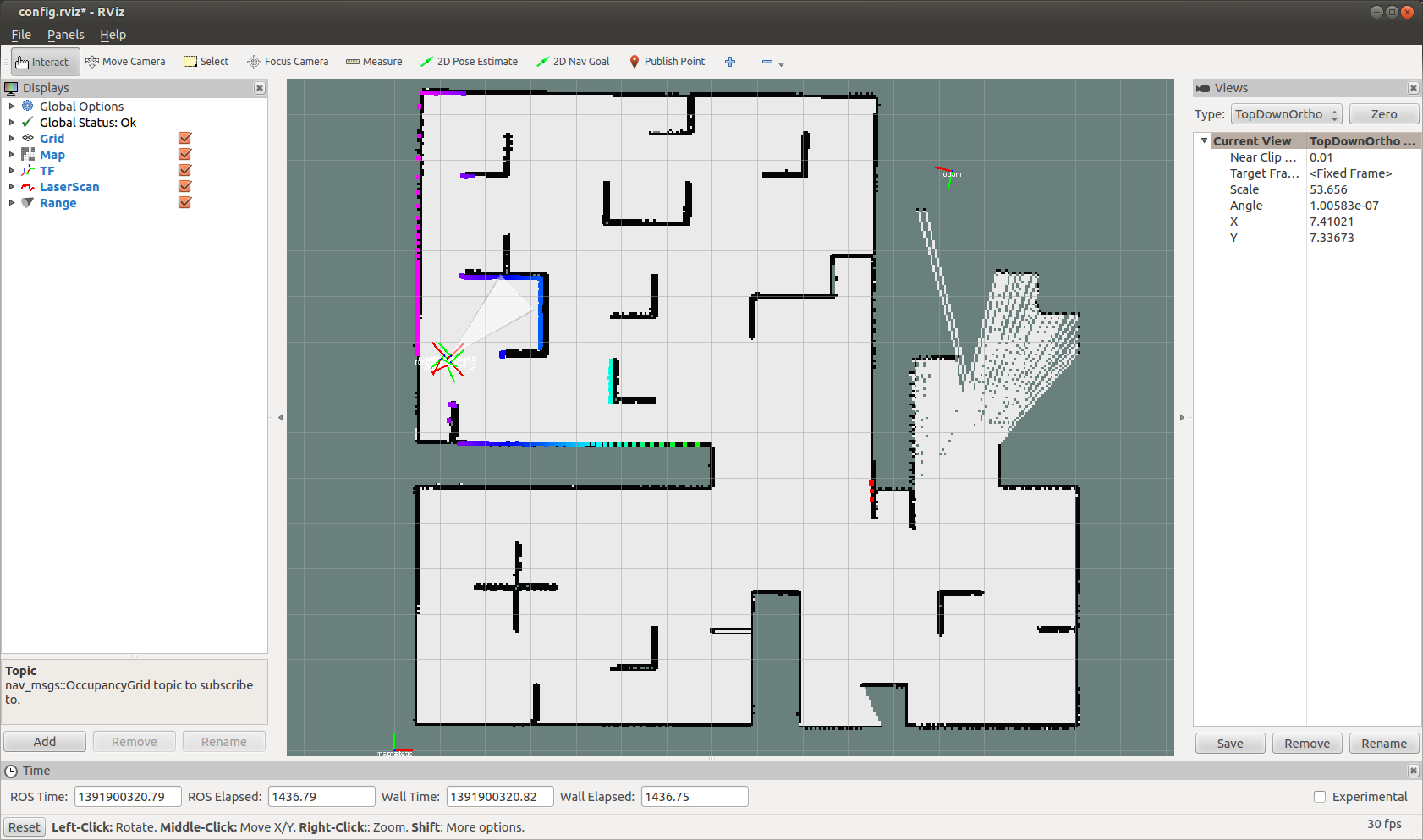| |
Create a map using gmapping
Description: How to create a map using a slam package (gmapping) and a simple obstacle avoidance node to move a robot autonomously while mapping.Tutorial Level: INTERMEDIATE
Next Tutorial: stdr_simulator/Tutorials/Using turtlebot for teleoperation
Contents
Start STDR Simulator with one robot
We will use one of the launchers provided in stdr_launchers. In a terminal run:
$ roslaunch stdr_launchers server_with_map_and_gui_plus_robot.launch
Run slam_gmapping node
You need to install gmapping first if you haven't already. Gmapping by default publishes the generated map to /map topic that conflicts /map topic used by STDR Simulator for the static map. You must change that, otherwise the simulator will crash. Start gmapping running the following command in a new terminal:
$ rosrun gmapping slam_gmapping scan:=/robot0/laser_0 _base_frame:="/robot0" map:=/gmapping/map
Start stdr_obstacle_avoidance node to move the robot autonomously
We will use stdr_obstacle_avoidance node, provided by stdr_samples package. You can use any navigation package you want, that publishes a geometry_msgs/Twist message, like move_base. To start stdr_obstacle_avoidance node, in a new terminal run:
$ rosrun stdr_samples stdr_obstacle_avoidance robot0 laser_0
The robot will start moving randomly and avoid collisions:

Run rviz to visualize the generated map
You can run rviz and subscribe to /gmapping/map topic to visualize the map, or you can use the launcher provided by stdr_launchers package and change the subscribed topic. In a new terminal, run:
$ roslaunch stdr_launchers rviz.launch
After you have subscribed to the correct topic, you should see the generated map by gmapping:








